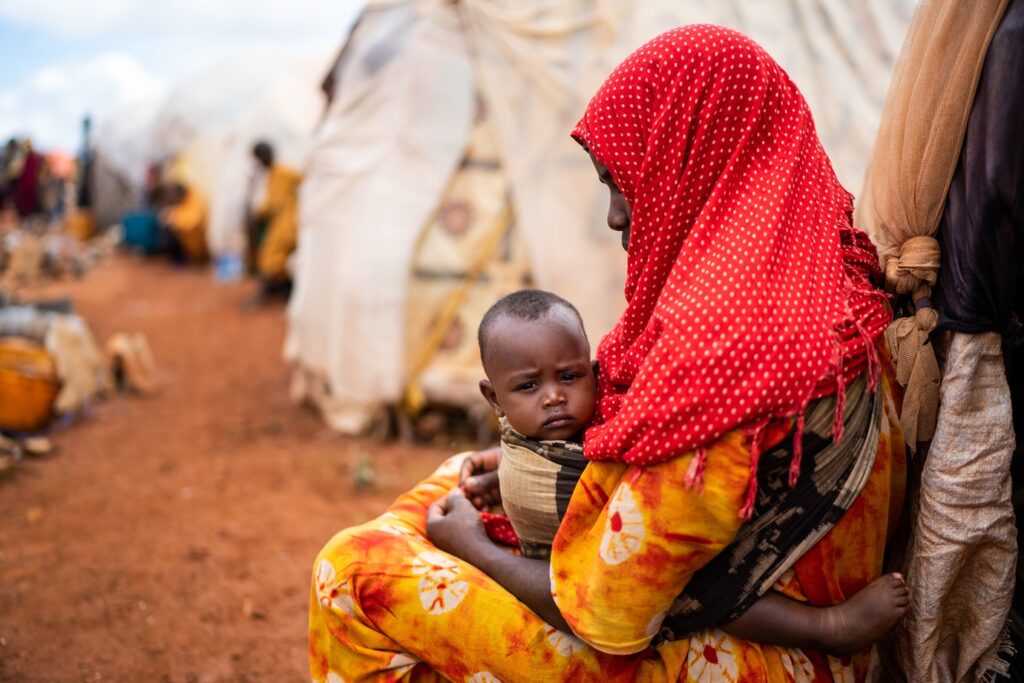Half of women’s organisations aiding women in crises may shut down in six months as a result of global aid cuts, according to a new UN Women survey.
Ninety per cent of the surveyed women’s organisations have been hit by funding cuts and pushed to a breaking point, as shown in a report launched today called: At a Breaking Point: The Impact of Foreign Aid Cuts on Women’s Organisations in Humanitarian Crises Worldwide.
The report is based on the results of a rapid global survey conducted among 411 women-led and women’s rights organisations across 44 crisis contexts.
“The situation is critical. Women and girls simply cannot afford to lose the lifelines that women’s organisations are providing,” said Sofia Calltorp, Chief of UN Women Humanitarian Action.
“Despite their roles as essential providers, advocates and watchdogs, women’s organisations have been severely underfunded even before the recent wave of reductions.”
“Supporting and resourcing them is not only a matter of equality and rights, but it is also a strategic imperative,” said Calltorp.
Among the 308 million people around the world who are in need of humanitarian assistance, women and girls are disproportionately affected by the crisis, suffering from preventable pregnancy-related deaths, malnutrition and high rates of sexual violence.
As the world continues to navigate escalating conflict, climate change, food insecurity and disease outbreaks, the severe funding cuts to women’s organisations are threatening lifesaving services for women and girls.
The UN Women’s survey shows 47 per cent of these women’s organisations are expected to shut down within six months if current funding levels persist. Already, a staggering 51 per cent of organisations have been forced to suspend programmes, including those for supporting survivors of gender-based violence, or those that provide critical access to protection, livelihoods, multi-purpose cash and healthcare.
Almost three-quarters (72 per cent) of women’s organisations report having to lay off staff as well.
“These organisations are cornerstones of our collective humanitarian response—driving change, offering hope, and delivering critical support to women, girls and their communities in the world’s toughest crises,” UN Women says, with their report calling for urgent action to ensure women-led organisations aren’t sidelined.
Think global, act local
Here in Australia, UN Women is leveraging global expertise to drive local impact on gender gaps. They’ve launched a new Leadership Network under the theme “Think Global, Act Local”.
The Network’s aim is to bring together influential leaders from across all sectors to tackle persistent gender inequality that prevents women from fully participating and leading in Australian society.
“Convened by the global champion for gender equality, UN Women Australia’s Leadership Network is a unique opportunity to bring together private, government, academic and community leaders to learn, collaborate and drive action,” said Padma Raman, PSM, Executive Director of the Office for Women at the Department of the Prime Minister and Cabinet.
For every dollar a man earns in Australia, women earn just 78 cents, and despite some progress, 79 per cent of Australian employers still have gender pay gaps outside the target range of +/-5 per cent.
CEO of UN Women Australia Simone Clarke said that “while some progress has been made, women remain dramatically underrepresented in leadership across most sectors.”
“This network creates a practical, action-oriented space where organisations and their current and aspiring leaders can collaborate to accelerate positive change.”


